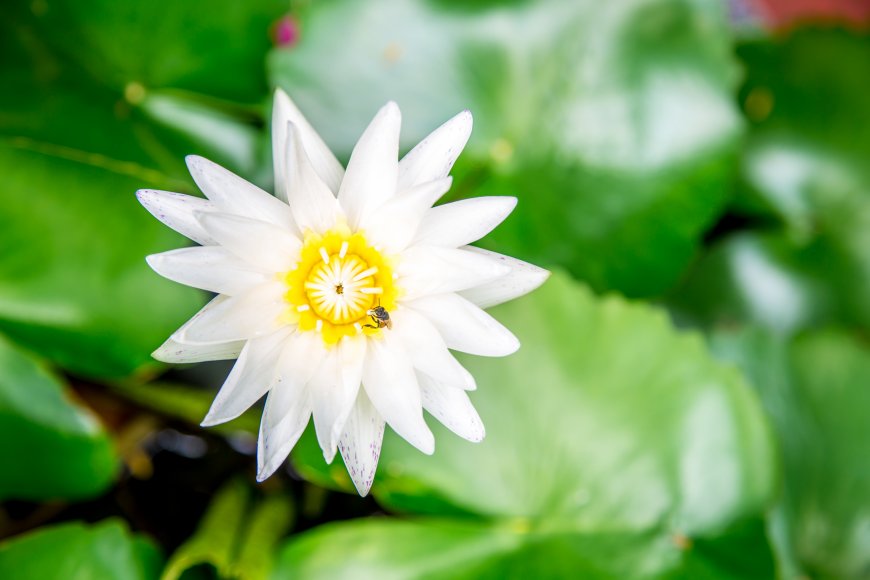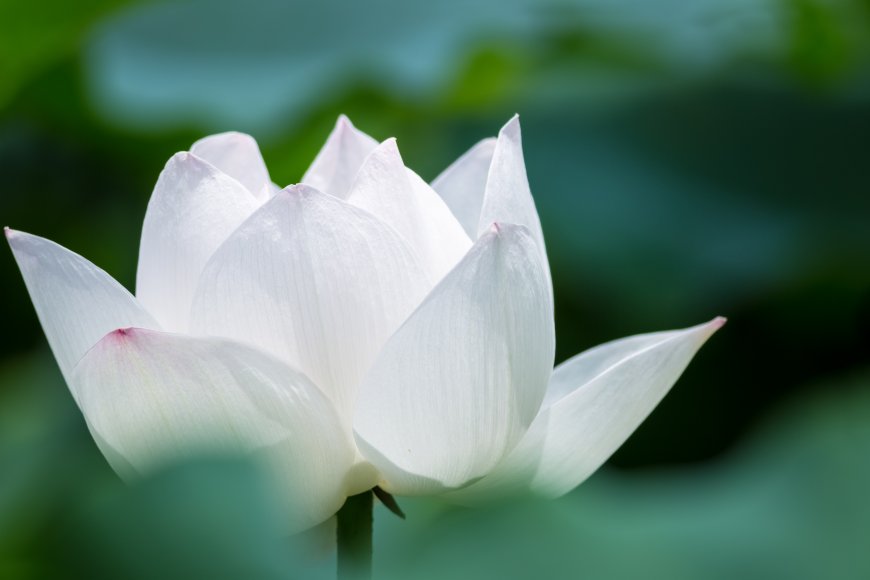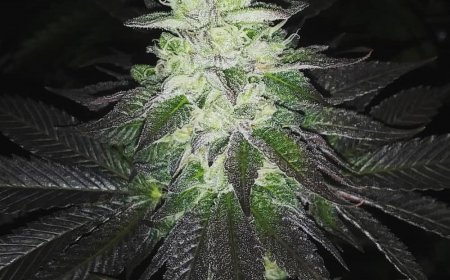What is White Lotus?
Explore "What is white lotus?" - uncover its history, effects, and legality in our comprehensive guide.

What is White Lotus? This intriguing plant has captured the attention of many young adults interested in exploring its potential effects. In this blog post, we will dive deep into the history of White Lotus and how it came to be known as a recreational substance.
We'll discuss the various effects that users report experiencing when consuming White Lotus, as well as any potential side effects one should be aware of. Furthermore, we'll address questions surrounding its safety and legality.
Finally, you will learn about different uses for this enigmatic plant beyond recreation. By the conclusion of this article, you will have acquired a thorough comprehension of what White Lotus is and how it relates to current society.
Table of Contents:
- What is White Lotus?
- History of White Lotus
- Side Effects of White Lotus
- Is White Lotus Safe?
- Uses of White Lotus
- White Lotus Legality
- FAQs in Relation to What is White Lotus
- Conclusion
What is White Lotus?
The White Lotus, also known as Nymphaea alba, is a beautiful aquatic plant native to Europe, North Africa, and parts of Asia. This enchanting flower has been used for centuries in various cultures due to its sedative and psychoactive properties. The main active compounds found in the White Lotus are nuciferine and aporphine, which are responsible for inducing feelings of relaxation and mild euphoria when consumed.
The White Lotus has been employed medicinally to combat sleeplessness, anxiety, and digestive problems. To learn more about this captivating plant's history and effects on the human body.
The White Lotus, an enigmatic blossom found in many societies, has been venerated as a representation of illumination and spiritual development. Its mysterious nature continues to captivate people today. As we explore the history of White Lotus, it's important to understand how this powerful symbol has shaped different cultures over time.
History of White Lotus
The white lotus, also known as Nymphaea caerulea or blue water lily, has a rich history dating back to ancient Egypt. The Egyptians held the flower in high regard for its spiritual and medicinal properties, often depicting it in their art and hieroglyphics as a symbol of rebirth and enlightenment.
TCM has long utilized the white lotus to address issues such as sleeplessness, stress, and digestive problems. In Hinduism and Buddhism, it is considered a sacred plant representing purity and spiritual growth.
Today, white lotus has gained popularity for its psychoactive effects when consumed as a tea or smoked. Many users report experiencing feelings of relaxation, euphoria, and enhanced creativity after using this natural remedy.
White Lotus has a long and intriguing past, with its origins reaching back far into the annals of history. As we move on to the effects of White Lotus, it's important to understand how this powerful plant has been used throughout time in order to fully appreciate its potential benefits.
Effects of White Lotus

Understanding the impact of White Lotus on the mind and body is essential for responsible use. This plant, known scientifically as Nymphaea caerulea, has been traditionally used for its mild psychoactive effects. When taken, White Lotus can create a feeling of calmness and joyfulness, sometimes with an intensified sense of awareness.
White Lotus contains alkaloids, such as nuciferine and aporphine, which are believed to be responsible for these effects. The experience may vary depending on factors like dosage, method of consumption (e.g., smoking or brewing into tea), and individual sensitivity.
- Relaxation: A calming effect that helps alleviate stress.
- Euphoria: Feelings of happiness and well-being.
- Sensory enhancement: Heightened awareness of colors, sounds, tastes, or smells.
White Lotus is a popular herb that has been used for centuries. It has gained popularity in recent years due to its unique effects. If you're interested in trying White Lotus, it's important to purchase it from a reputable source.
The advantages and disadvantages of White Lotus can vary from person to person, so it is critical to comprehend these implications before deciding if this material should be taken. Moving onto side effects, it is also essential to consider potential risks associated with consuming White Lotus in order to make an informed decision.
Side Effects of White Lotus
It is essential to be cognizant of the possible risks associated with White Lotus consumption, despite its generally accepted safety. Some have experienced light headaches, a feeling of unsteadiness and nausea after taking White Lotus.
- Mild Headaches: This can occur due to dehydration or an individual's sensitivity to the plant's alkaloids.
- Dizziness: A temporary sensation that usually subsides within a short period but could be disorienting for some users.
- Nausea: Ingesting large quantities or consuming on an empty stomach might cause discomfort and vomiting in rare cases.
To minimize these risks, start with low doses and gradually increase as you become more familiar with your body's response to White Lotus. Additionally, ensure proper hydration before and during consumption.
Overall, it is important to be aware of the potential side effects that White Lotus can have on your body. Therefore, it is essential to evaluate if taking this substance is safe for you before consumption. Is White Lotus Safe? This article will discuss the safety of using this plant and its associated risks.
Is White Lotus Safe?
Assessing the safety profile of White Lotus is essential for those interested in exploring its effects. Generally, it is considered safe when used responsibly and in moderation. Nonetheless, one should take certain safeguards into consideration.
- Allergic reactions: Some individuals may experience an allergic reaction to White Lotus. If you experience any signs of an allergic reaction, such as itching or swelling, discontinue use and consult a healthcare professional.
- Pregnancy and breastfeeding: The safety of using White Lotus during pregnancy or while breastfeeding has not been established. It's best to avoid use during these times.
To ensure a positive experience with this plant, always start with a low dose and gradually increase it if needed.
Consulting with a medical professional is suggested prior to consuming White Lotus, even though moderate amounts are thought to be harmless. Let's now look into the potential advantages of White Lotus and how it can help us improve our health.
Uses of White Lotus
The White Lotus, also known as the Sacred Lily, has a rich history of use for its various properties. It was used in ancient Egypt for both religious and medicinal purposes. Today, people continue to explore the potential benefits of this fascinating plant.
- Relaxation: The calming effects of White Lotus are well-known among enthusiasts who seek natural ways to unwind and destress.
- Aphrodisiac: Some users report enhanced sexual experiences when using White Lotus due to its purported aphrodisiac qualities.
- Meditative aid: With its mildly psychoactive properties, White Lotus can help deepen meditation practices by promoting a sense of tranquility and introspection.
Further exploration is needed to comprehend the full scope of White Lotus's potential. If you're interested in learning more about White Lotus, check out the works of Mike White and Beatrice Granno.
The potential uses of white lotus are vast and varied, making it a valuable tool for many individuals. Moving on to the next heading, we will explore the legality of white lotus in different jurisdictions around the world.
White Lotus Legality
The legal status of White Lotus varies across different countries and regions. In the United States, it is not classified as a controlled substance, making it legal to possess and consume. However, some states have their own regulations regarding its use.
In Europe, laws surrounding White Lotus are more complex. In the EU, though not generally prohibited, individual nations may impose distinct stipulations or demands for its sale and use. For example, in the Netherlands - known for its liberal drug policies - you can easily find White Lotus at smartshops and online retailers.
To ensure compliance with local laws when using or purchasing White Lotus products, always research your country's regulations before proceeding.
FAQs in Relation to What is White Lotus

What is the main message of White Lotus?
The main message of White Lotus is to inform people about its history, effects, side effects, safety concerns, uses, and legality. It aims to provide comprehensive information for young adults who are interested in growing or consuming this plant recreationally.
What is White Lotus?
White Lotus refers to a type of water lily (Nymphaea alba) that has been traditionally used for its psychoactive properties. The plant contains alkaloids like nuciferine and aporphine which induce relaxation and mild euphoria when consumed. This article discusses various aspects related to White Lotus including its history, effects on users, potential risks, and legal status.
White Lotus has gained popularity in recent years due to its association with Mike White's HBO series, "The White Lotus." However, it is important to note that the plant has been used for centuries in various cultures for medicinal and spiritual purposes.
History of White Lotus
The use of White Lotus can be traced back to ancient Egypt, where it was considered a symbol of rebirth and spiritual enlightenment. It was also used in traditional Chinese medicine to treat various ailments such as diarrhea, fever, and insomnia.
Effects of White Lotus
Consuming White Lotus can induce a sense of relaxation and mild euphoria. It is also said to enhance sexual experiences and promote lucid dreaming. However, it is important to note that the effects of White Lotus can vary depending on the individual and the dosage consumed.
Side Effects and Safety Concerns
While White Lotus is generally considered safe, consuming large amounts can lead to adverse effects such as nausea, dizziness, and confusion. It is also important to note that the plant has not been extensively studied, and its long-term effects are not well understood.
Legal Status of White Lotus
The legal status of White Lotus varies depending on the country and region. In some places, it is legal to grow and consume for personal use, while in others, it is considered a controlled substance. It is important to research the laws in your area before growing or consuming White Lotus.
Overall, White Lotus is a fascinating plant with a rich history and potential for various uses. However, it is important to approach it with caution and respect, and to always prioritize safety and legality.
Conclusion
For centuries, White Lotus has been utilized in traditional medicine and as a recreational drug. Its effects may range from a slight calming to an intense high, yet it can also carry possible risks.
While White Lotus may have some beneficial uses, such as reducing anxiety and promoting sleep, it is important to use caution when consuming this substance due to its potential risks. Additionally, the legality of White Lotus varies by location.




































































































































